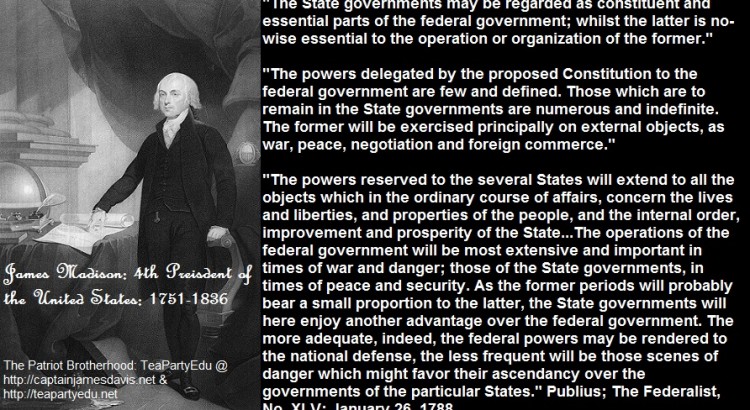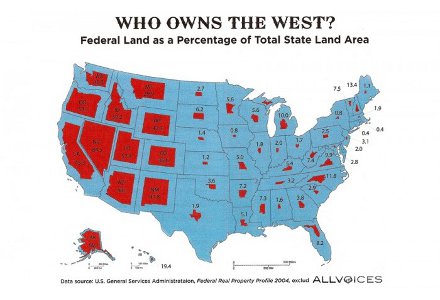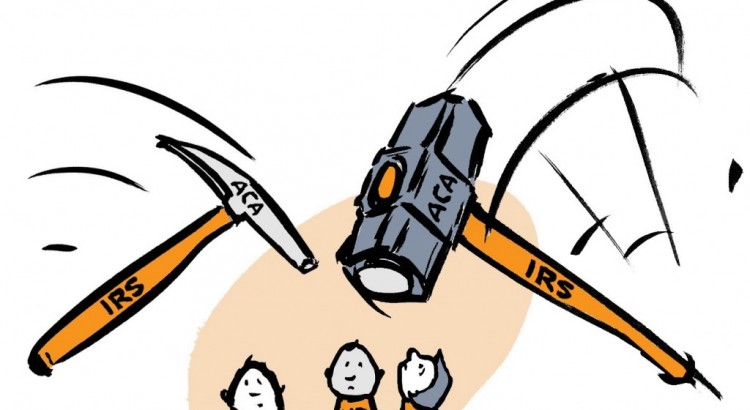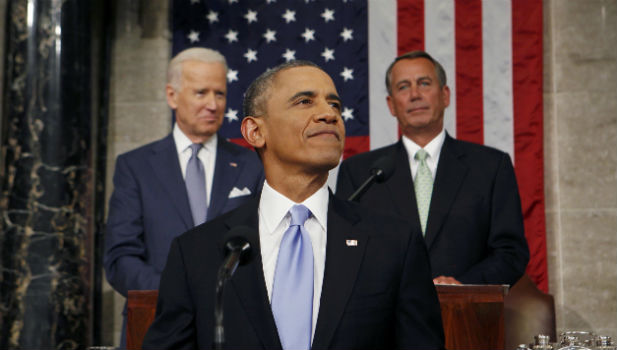When we look at the intrusiveness of the federal government into our lives, we should step back and ask “Where is my state government?” It was the states, acting as independent nation-states which agreed to join together as a union under a federal constitution instead of its then current confederacy. In so doing, they did not give up their independence or authority completely, but only in certain limited, defined areas. It was the intent of our founders that the state legislatures should be our protectors against assaults against our liberties and the authority of the states by the federal government, as noted by Alexander Hamilton in The Federalist No. 85:
“We may safely rely on the disposition of the State legislatures to erect barriers against the encroachments of the national authority.”
In examining the areas in which the federal government is to act in behalf of the states, they are limited (in broad manner) to the following:
From Article I, Section 8 of the Constitution:
- To negotiate on behalf of the states with foreign nations in matters of commerce or other treaties;
- To establish laws regulating naturalization as it relates to citizenship;
- To coin money as a uniform standard of exchange among the states (an action prohibited to the states in Section 9);
- To establish post offices and post roads between the states;
- To provide for a military in defense of the states.
From Article III, Section 2:
- To act as an arbitrator in disputes between two or more states.
From Article IV:
- Section 2 – To guarantee the rights of citizens in each state are honored by the other states.
- Section 4 –
- To guarantee that each state shall have a republican form of government;
- To protect the states from invasion and aiding in curbing domestic violence when requested by the legislature of the state in need of assistance.
In light of these I ask – “How’s the national government doing in regards to fulfilling its obligations?” I can’t see where it is earning a passing grade in any of these areas. Our biggest problem in the destruction of our liberties by the national government stems, I believe, from its utter rejection of its first obligation in Article IV, Section 4 above.
Consider the recent ruling of the SCOTUS on marriage in which it has forced states that have previously rejected recognition of gay marriage that they must do so. When citizens of a state through their representatives have said they do not wish to recognize such marriages are told by the national government they must, then the republican form of government in that state has been destroyed. Or again, if the citizens of a state through their legislators decide they wish to have restrictive gun laws, for the national government to step in and countermand the laws of that state, then once more, the republican form of government in that state has been destroyed.
There are many more such examples I could list similar to these two, but I hope you see the point. The federal government is restricted to a few and defined (in the words of James Madison) areas, and those left to the states are broad and undefined. I would submit that given the current condition of world affairs, the federal government should butt out of the business of the states and start concentrating on its obligations to the states, and that it is time for the states to start demanding that the federal government honor its obligations, starting with the one in Article IV, Section 4, Clause 1.
-January 29, 2016




